Article 7 in the Convention on the Elimination of All Forms of Discrimination against Women (CEDAW) reiterates the importance of women’s representation in the political life of their countries:
- “…ensure to women, on equal terms with men, the right:
(a) To vote in all elections and public referenda and to be eligible for election to all publicly elected bodies;
(b) To participate in the formulation of government policy and the implementation thereof and to hold public office and perform all public functions at all levels of government”
The School of Midwifery, Zagreb chose the Crotaian writer and journalist Marija Jurić Zagorka, an activist and advocate of women's rights who lived at the turn of the 19th to 20th century as representative of feminist movement.
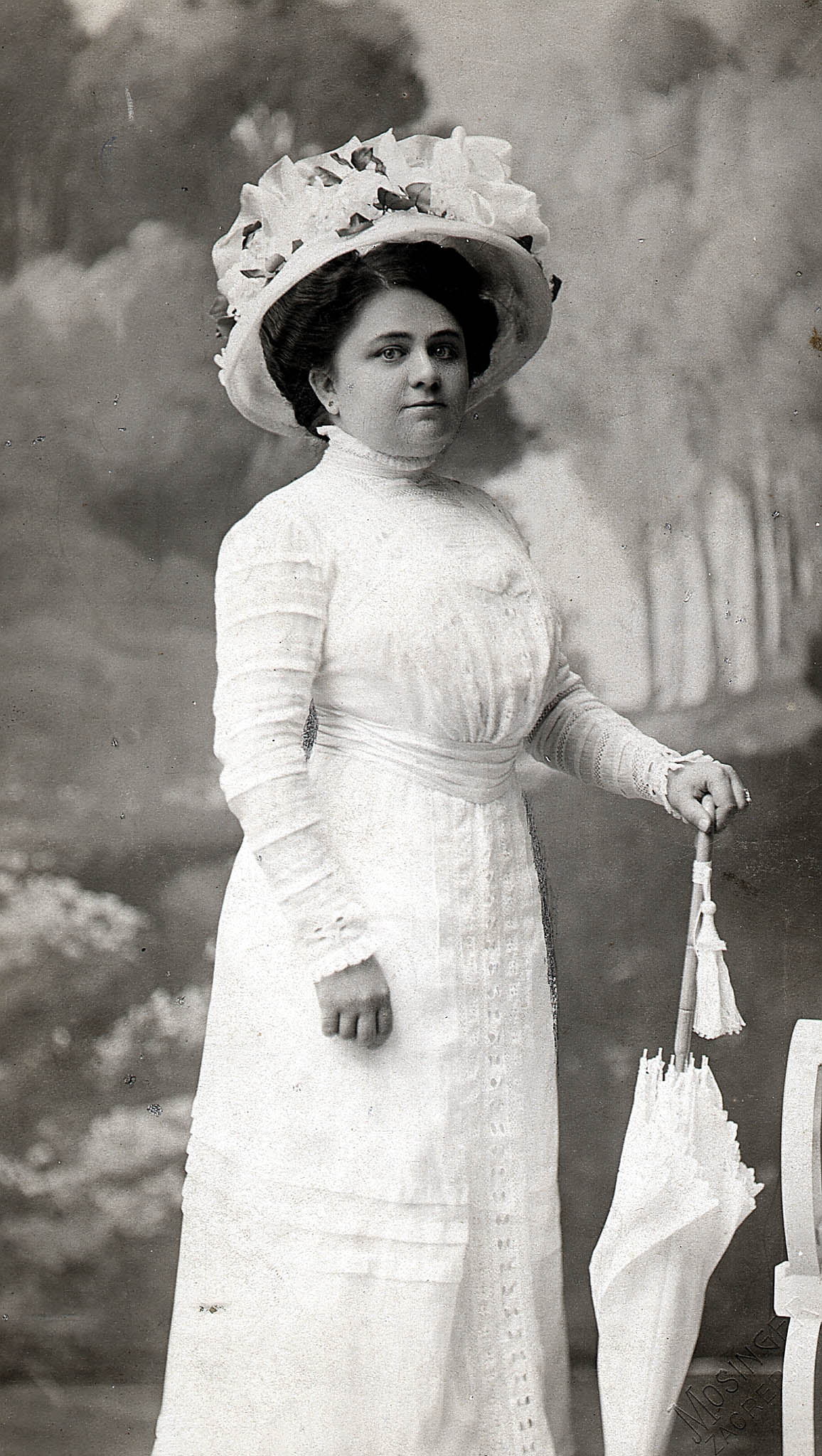
TV Reporter: One of the most important members of the women's movement who was herself a victim of Discrimination in social and business environment is our most famous writer and journalist Marija Juric Zagorka. She was born on March 2nd, 1873. in the aristocratic manor Negovec near Vrbovec.
Despite being a gifted child, her parents did not allow her to get an education but decided she should marry young. Her marriage, in which she suffered a nervous breakdown, fell apart three years later and she escaped from her husband to Zagreb, where she painstakingly began her career in journalism, then unusual for women...
Life as from the novel, one might say.
Marija Jurić Zagorka: Everywhere I went I was treated with distrust and disdain. Being a woman in politics in the 19th century was considered like being a woman in a brothel. In the newspaper office I worked for, everyone looked at me in amazement (...) And I only wanted to spread feminism and help women to participate in public life. My aspiration was always the emancipation of women.
In every national struggle the Croatian women was strong support to men. However, when the right to vote was given to every adult male, the female part of the population was not included. Not even mentioned, though the need for women cooperating in the state and national development has been proven many times!
When the last democratic country under the sun, Hungary, gives women the right to vote, Croatian electoral reform leaves out the democratic principle of equality of people. When the whole world has democratized, our electoral reform divide the male part of the population from the female part and leaves the boundaries between them, similar to the ancient boundaries, which existed in the past when privileged nobles had all the rights, and the peasants, had only duties. The only difference is, that then, literate lords possessed the privileges over illiterate servants, while today an illiterate man gets the privilege over a literate woman.
Two 1st grade classes with their teachers visited, on February 2nd, Marija Jurić Zagorka Memorial center and learned about this extraordinary woman.
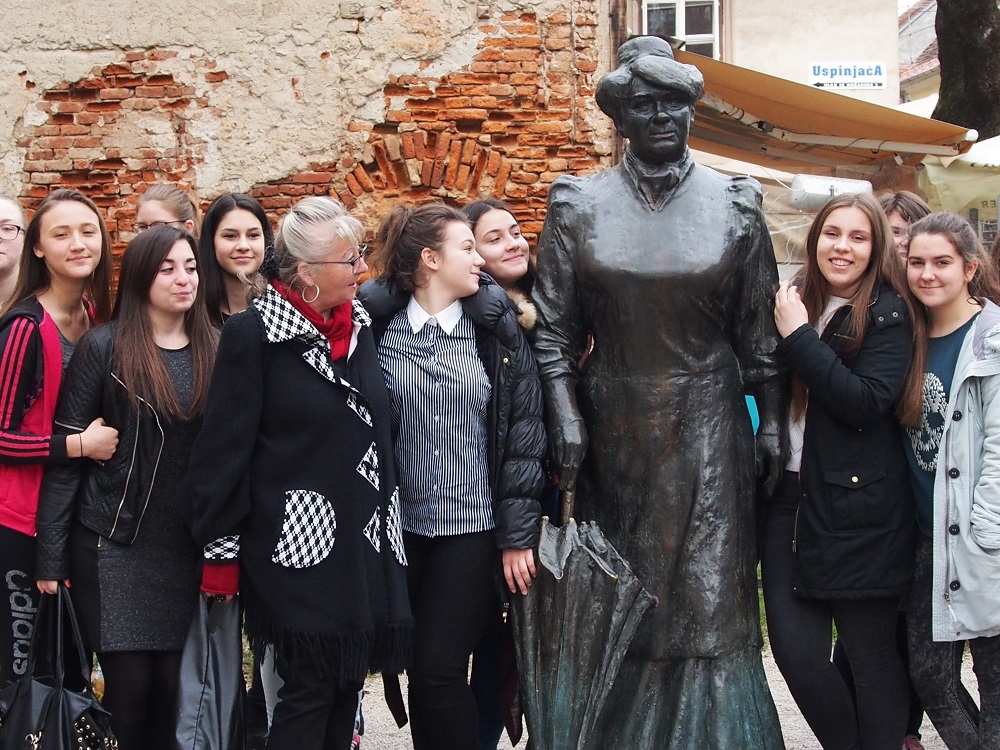
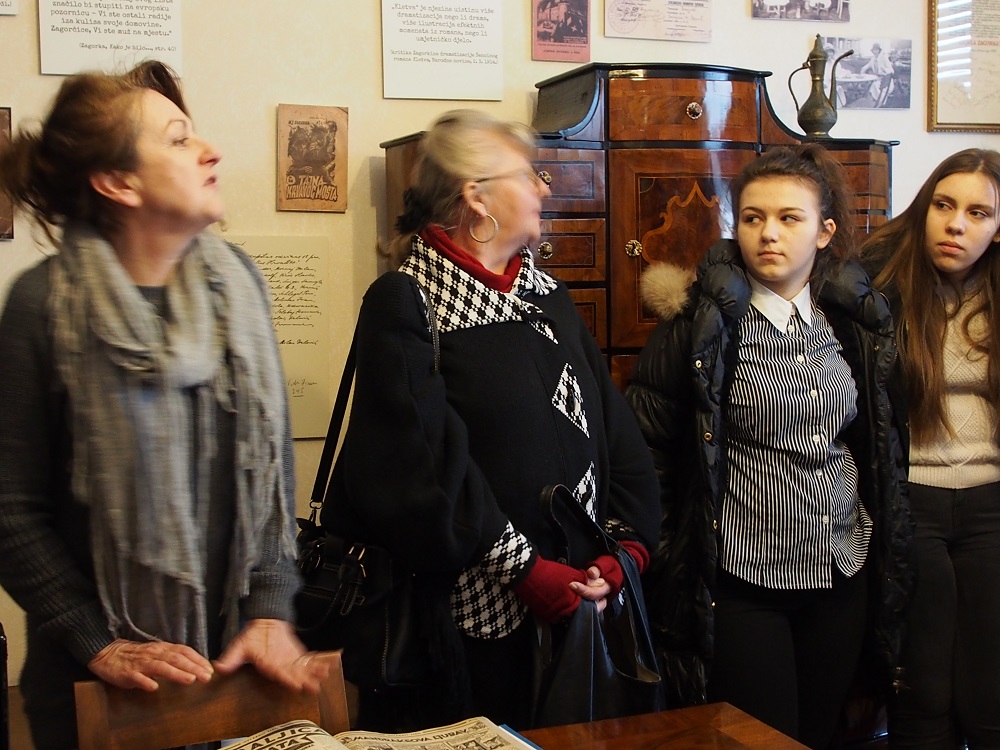
GREEK TEAM
A SHORT HISTORY OF THE PIONEER FOR THE RIGHTS OF WOMEN IN GREECE
KALLIROHE PARREN
Kallirhoe Parren (in Greek:Καλλιρρόη Παρρέν; born in Rethymno, Grete, 1861 – died in Athens in January 15, 1940) launched the feminist movement in Greece and was a journalist, teacher and writer in the late 19th and early 20th century.
Born in Rethymno, Crete, to a middle-class family, Kallirhoe Parren attained her primary education at the nun’s school in Pireaus. Upon completion she studied at the best school for girls in Athens and in 1878 she graduated from the Arshakeion School for training teachers. She was very intelligent and knew many languages including Russian, French, Italian, and English. She was invited to Odessa, Russia, where she worked for two years running the Greek community school for girls. She also went toAdrianople, Ottoman Empire, for several years to run the Zapeion School for the Greek community. She finally settled in Athens with her husband, a French journalist named Jean Parren, who established the French press agency in Constantinople.
She was staying in Athens when she launched the feminist movement with the founding of a newspaper, Ephimeris ton kirion (Women's Journal), in 1887. This was a publication run entirely by women and appeared initially as an 8 pg. weekly until 1908 when it changed to a bi-monthly that ran until early 1916. She had a way of communicating with people that enabled her to convince all the famous female writers of her time to contribute to her paper even if those writers did not think of themselves as feminists. The newspaper finally stopped running when in 1917 Parren was exiled by Eleftherios Venizelos’ administration to the island of Hydra, because she opposed Greece’s involvement in WWI on the side of the Entente.
Kallirhoe Parren played a key role in ensuring the women’s right to vote. The first attempt was in 1895, when she addressed the Prime Minister Charilaos Trikoupis asking him to guarantee political rights of women. Later, in 1921, she organized the second women conference in Greece, thus persuading the Prime Minister Dimitrios Gounaris be placed personally in favour of granting the right of vote to women . Ensuring the right to vote to women took too long to be administered and Kallirhoe Parren never saw her dream for women's empowerment to come true in the political scene of the country.
Photo 1: Kallirhoe Parren as a young lady
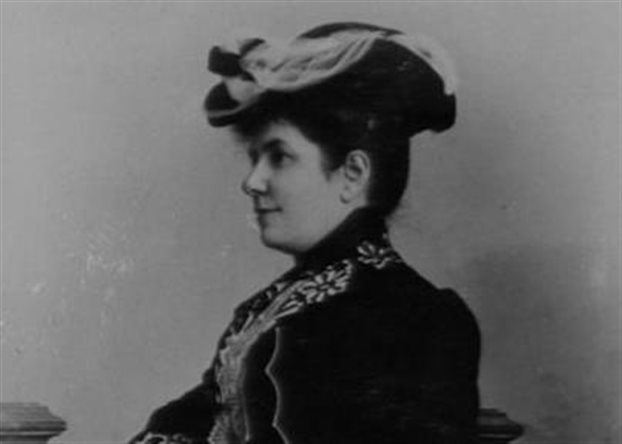
Photo 2: The front page of the first issue of her journal: Ephimeris ton kirion (Women's Journal)
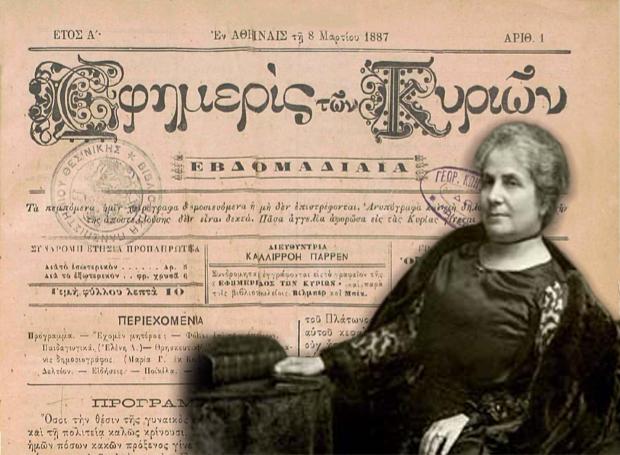
Photo 3: Kallirhoe Parren as a mature lady.
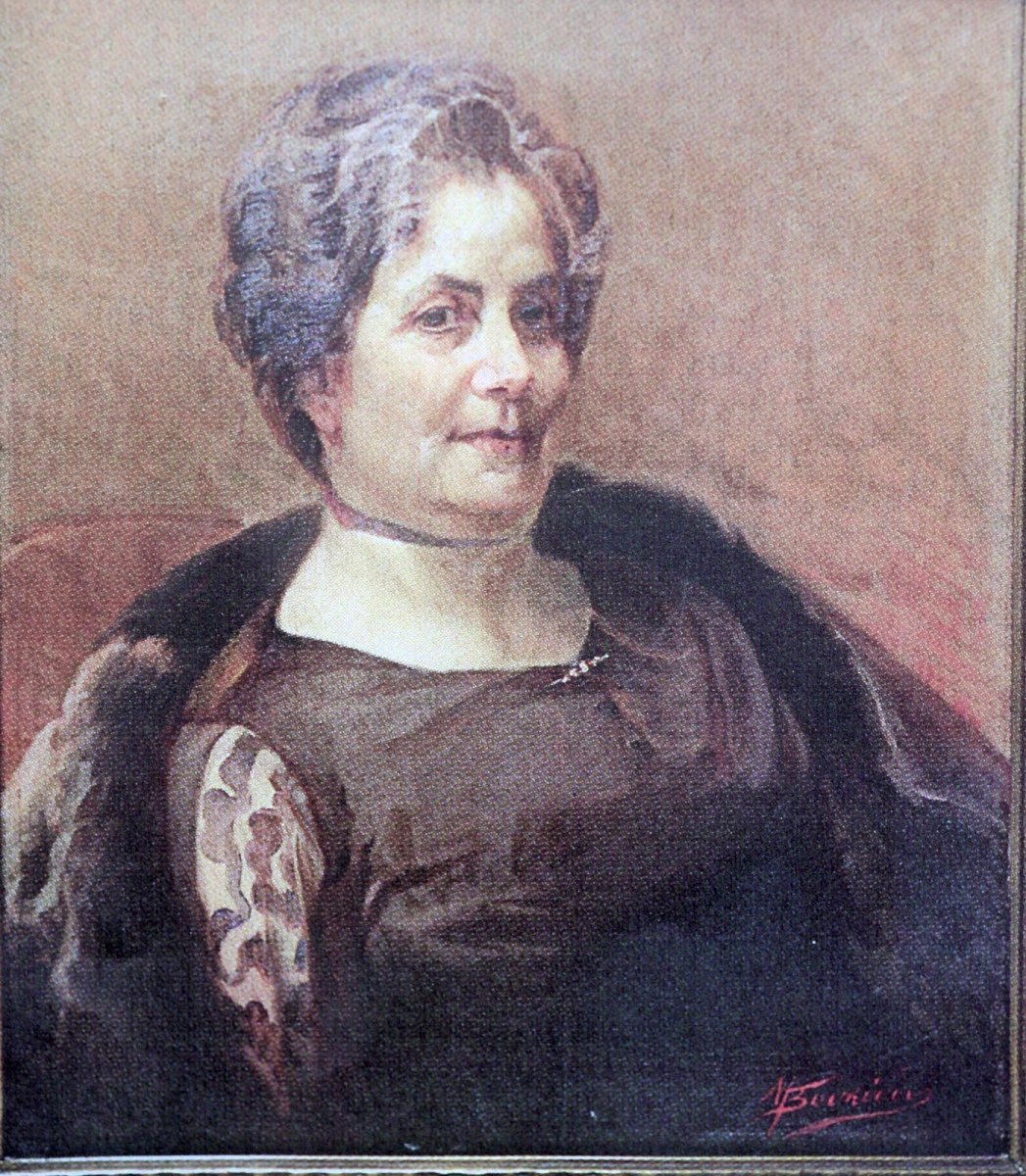
Comment: Very interesting story. Nice job! School of Midwifery
Learning about Greek women's right activist in the School of Midwifery and finding similarities about Marija Jurić Zagorka and Kallirhoe Parren
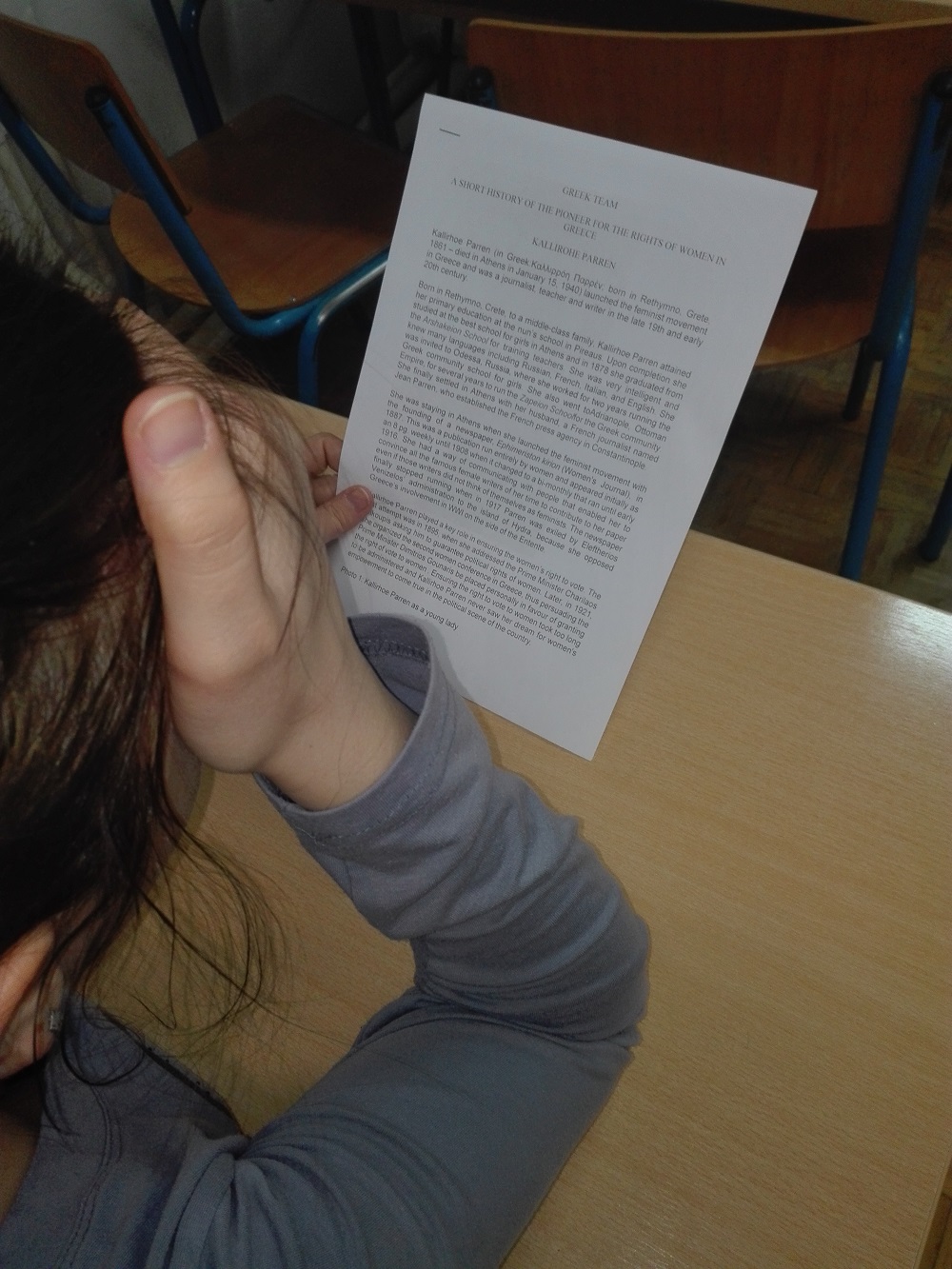
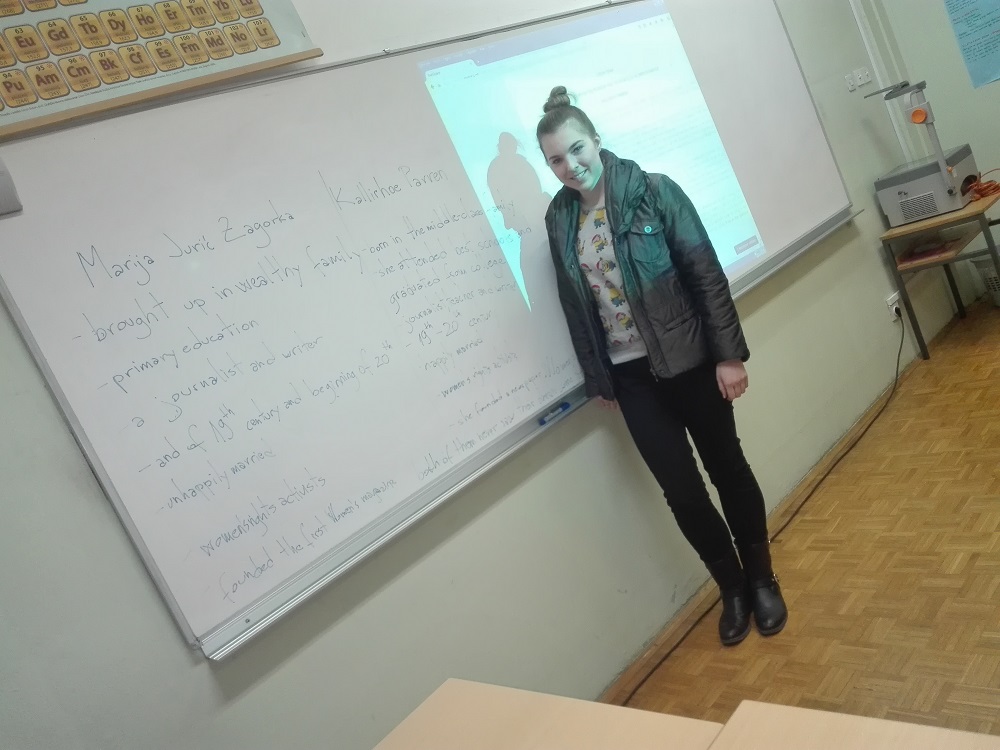
FRANCE
In France, the right of vote for women was only granted in 1944, even later than in Birma!
There are not so many women representatives at the National Assembly. For example, under Sarkozy there were only 13 women for 40 men.
There is also inequality at work: women get paid 27% less than men.
Today in France, 1.5 million women suffer from verbal or physical violence and only in 1990 was rape in a marriage considered as a crime.
One funny thing: since the 19th century, a law that is still valid today says wiomen are not allowed to wear trousers!!
Luckily enough, women fought for their rights and managed to improve the situation. Contraception laws were passed in 1975 and abortion was legalized in 1979 by Simone Weill.
Here is a portrait of the most famous feminist in France: Simone de Beauvoir (by Ethel and Luana)